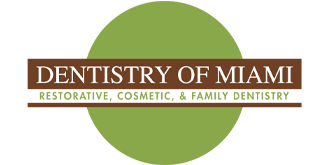Almost one out of 10 Americans experience some degree of asthma. Those who live with this respiratory disease experience a host of common symptoms. These people can have their sleep impacted, as well as their academic efforts and work performance. If the condition is advanced enough, it can cause bronchial scarring that interferes with their ability to breathe. Another, less commonly known impact is the ability of asthma to cause oral health complications. Gum disease, tooth decay, mouth ulcers, and other issues can all result from asthma.
The Potential Oral Health Concerns From Asthma
The impact of asthma on oral health may not be immediately obvious. As you consider the various parts of the body that experience consequences from its symptoms, the picture reveals itself. The majority of asthma symptoms can have secondary impacts on your teeth, gums, and oral structures. You can find the most frequent concerns below:
- Dry Mouth – Asthma attacks produce periods of shallow rapid breathing that can have a drying effect on the oral cavity. As the saliva evaporates during these episodes, it can produce a condition known as dry mouth. Saliva has several properties that protect us from bacteria, as well as serving to wash away food debris.
- Oral Sores – Numerous potential side effects are part of the medication in your inhaler. Some patients experience a sensitivity to the ingredients that irritate the tissues lining their mouth. In severe cases, this can result in oral ulcers.
- Thrush – One uncommon oral affliction is thrush. This condition is the result of a yeast infection setting in in the oral cavity. Outside of the immunocompromised, very young, and elderly, it’s very uncommon. Asthma patients are one of the few demographics that may commonly experience it.
Each of these oral health complications is more common in patients with asthma. With some little care and attention, it’s possible to offset these concerns so you don’t experience them.
- Rinse After Each Inhaler Use – Each time you use your inhaler, be sure to rinse out your mouth. This will help remove the more irritating remnants from your teeth, cheeks, and gums. You may also want to add an additional brushing each day to help.
- Drink Plenty of Water – Hydration is an important part of overall health, and it can help offset the consequences of using an inhaler.
- Change Inhalers – You can speak to your respiratory specialist about changing your inhaler if you experience serious respiratory concerns.
- Control Allergy Breakouts – The severity and frequency of asthma attacks have been seen to be more severe in patients with allergies. You should be certain to make a point of wearing masks during high pollen days and making sure your home is free from allergens.
- Communicate With Your Dentist – Consulting with your dentist can also provide additional guidance towards eliminating these complications. Guidance and treatments can be provided to help manage your concerns.
These steps can help prevent the oral health complications that can result from asthma attacks and the medication used to control them.
Speak With Your Dentist For Help
Additional options for controlling your asthma can be learned by speaking to your dentist or hygienist. Give their offices a call and have them schedule a consultation for you. The results can be relief from asthma-related oral health conditions.


